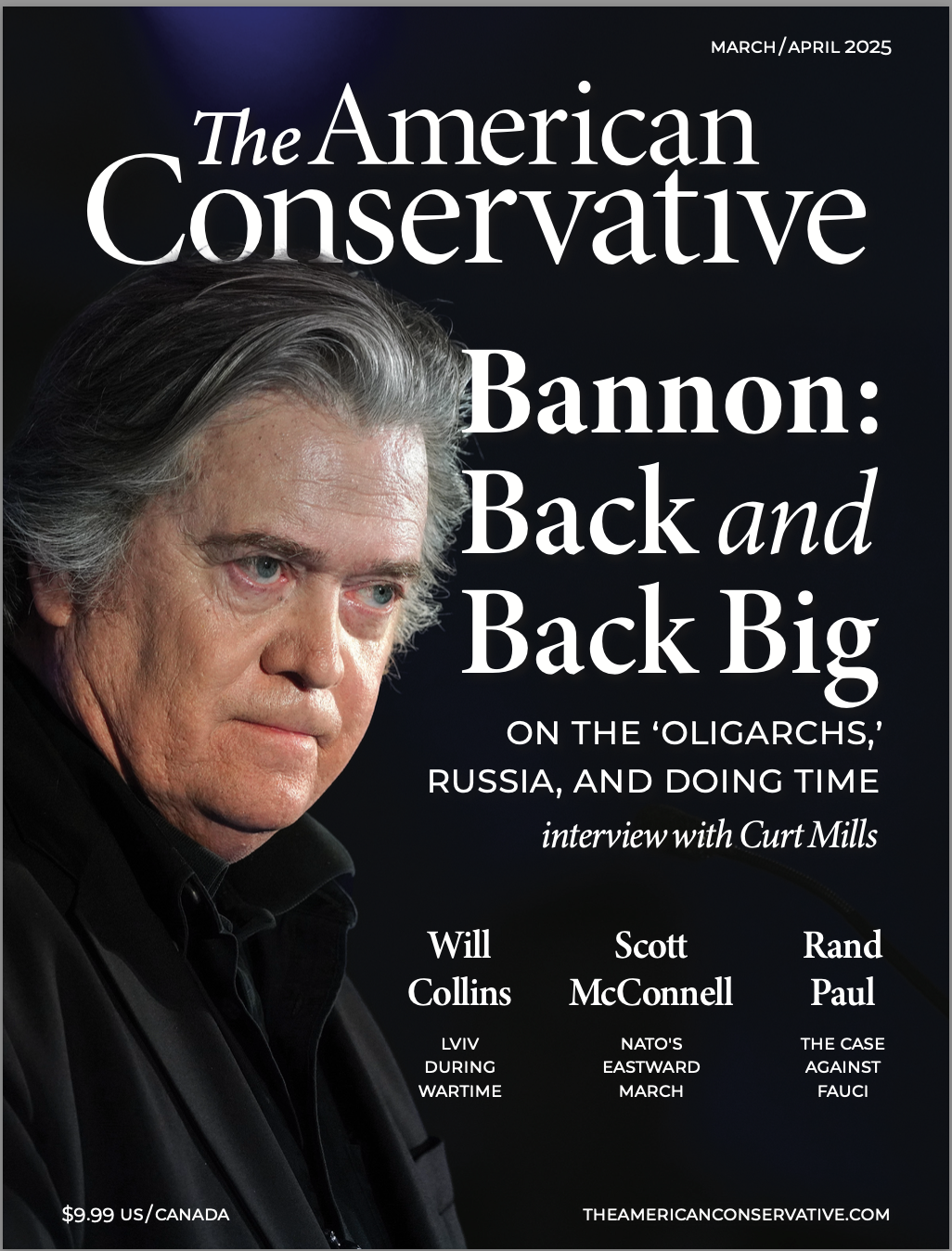The Winds of Change
Introducing the March/April 2025 issue.

Whatever the groundhog may say, springtime is in the air at The American Conservative’s offices; a warm breeze is blowing from a few blocks away, the pile at 1600 Pennsylvania Avenue. The heady early days of the new administration seem to have opened new horizons of possibility for the nation.
Yet possible futures are always in some way determined by the past, just as different fingers are pushed forward from the palm of the hand. It is always worth revisiting the forerunners. No one has done more to lay the intellectual groundwork for the current moment than Steve Bannon; TAC’s fearless leader, Curt Mills, catches up with the man himself in his DC lair, finding him as energetic and focused as ever, and with his eye on the next big thing. In a darker way, Anthony Fauci also had his hand in making the world of 2025. It is our privilege to publish Senator Rand Paul’s case against the King of Covid.
This issue is replete with this sort of chiaroscuro of past and future. Our senior writer, Sumantra Maitra, examines a medieval Ottoman sultana who provides a model for modern diplomacy; Jude Russo, managing editor, reviews a work on the fraught history of Islam in Turkey and its influence in modern Turkish politics. Will Collins reports from the ground in Lviv, once a crossroads of great empires and now a grim talisman of Ukraine’s uncertain fate. Scott McConnell, TAC’s founding editor, reviews a new account of the decades of missteps that led to the war in that country, while Nic Rowan reviews the new memoirs of Bill Clinton, who presided over so many of those missteps. Daniel DePetris exhorts the president not to be bound by those years of foreign-policy misrule when it comes to dealing with a putative American ally, Saudi Arabia. The past determines, but it need not dictate; stasis is a rare thing in the annals of world affairs, as illustrated by the TAC assistant editor Joseph Addington’s sad chronicle of Ecuador’s recent collapse into violent dysfunction.
The transformation of past to future is not merely historical and technological—see William Lind’s commentary on the dawning era of drone warfare—but also personal. Spencer Neale, our features editor, charts the transformation of Mark Zuckerberg’s character from that of the widely despised enfant terrible of Silicon Valley to something warmer, more human, and, in its way, more traditional and American. Speaking of traditional and American: Peter Tonguette turns his pen to the great American poet, Robert Frost, and the sins of his most recent biographer.
The post The Winds of Change appeared first on The American Conservative.

